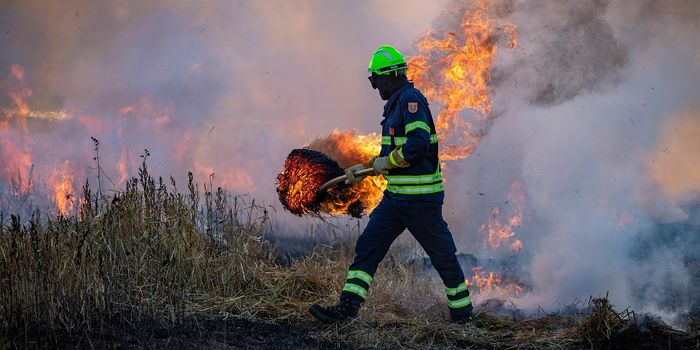Rare Genetic Mutation Makes People More Prone to Colds
Are you someone who always has the unfortunate luck to catch whatever cold virus that’s going around? Well, scientists now say that genetics could be to blame.
The investigation into cold virus susceptibility was prompted by the case of a little girl. In her five year lifespan so far, the child has had numerous, sometimes life-threatening, infections with the human rhinovirus, which causes the common cold. Researchers at the National Institute of Allergy and Infectious Diseases (NIAID) suspected a defect in her immune system. Thus, they began probing her genetic profile in the hopes of finding a culprit.
Indeed, the 5-year-old girl had a mutation in a gene known as IFIH1. IFIH1 provides the instructions for the production of the MDA5 protein, which helps cells detect and recruit other proteins to fight off viral infections. In the case of the child, the mutation caused her body to produce an abnormal form of the MDA5 protein, which obstructed her cells from recognizing and launching an attack on human rhinoviruses (HRVs).
The findings in the patient corroborate findings in mice studies, showing that MDA5 deficiency led to weakened responses to certain viruses. However, the current study is the first to link the IFIH1 mutation, MDA5 deficiency, and susceptibility to the common cold.
“The human immune response to common cold viruses is poorly understood,” said Anthony S. Fauci, NIAID Director. “By investigating this unique case, our researchers not only helped this child but also helped answer some important scientific questions about these ubiquitous infections that affect nearly everyone.”
Fortunately, the mutation in the child is very rare; researchers reported a minor allele frequency of 0.06 percent. Furthermore, the mutation is found most commonly in East and South Asian populations.
When the IFIH1 gene was analyzed in a database of over 60,000 volunteer’s genomes, the team found a few different but also rare variants that could alter the production of normal MDA5 proteins. However, the team did not find a significant association between these mutations and HRV infections. Rather, people with these other rare IFIH1 mutations seem to have healthy lives and children, indicating that there may be other genetic factors that compensate for the MDA5 defect.
"When people have other disease factors, [rhinovirus] infection can become a tipping point and lead to severe illness, disability or even death," said Helen Su, chief of the Human Immunological Diseases Unit at NIAID, and the study’s senior author. "Now that we better understand the pathway, we can investigate more targeted ways to intervene.”
Additional source: NIH, Live Science









